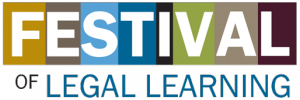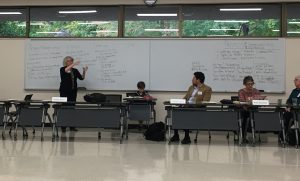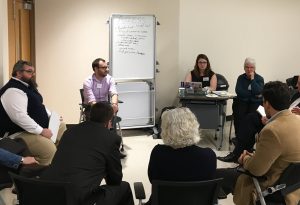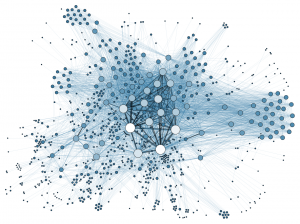 Each year, the UNC Festival of Legal Learning provides CLE credit in over 120 areas. The Festival allows attorneys to obtain 12 hours of CLE credit through a convenient and fun schedule spread over two days. This year’s Festival will take place on Friday, February 9, and Saturday, February 10, at the William & Ida Friday Continuing Education Center in Chapel Hill.
Each year, the UNC Festival of Legal Learning provides CLE credit in over 120 areas. The Festival allows attorneys to obtain 12 hours of CLE credit through a convenient and fun schedule spread over two days. This year’s Festival will take place on Friday, February 9, and Saturday, February 10, at the William & Ida Friday Continuing Education Center in Chapel Hill.
We are thrilled to invite those participating in the Festival to attend the sessions on media law and policy, which are sponsored by the Center for Media Law and Policy. The sessions will be presented by the following attorneys:
- David S. Ardia, Associate Professor of Law and Co-Director of the UNC Center for Media Law and Policy;
- Mary-Rose Papandrea, Judge John J. Parker Distinguished Professor of Law and Associate Dean for Academic Affairs at the UNC School of Law;
- Julia C. Ambrose, Attorney at Brooks, Pierce, McLendon, Humphrey & Leonard;
- Elizabeth A. DeVos, Attorney at Nelson Mullins Riley & Scarborough;
- C. Amanda Martin, Attorney at Stevens Martin Vaughn & Tadych and General Counsel to the N.C. Press Association;
- Timothy G. Nelson, Attorney at Brooks, Pierce, McLendon, Humphrey & Leonard;
- Dowse B. Rustin IV, Attorney at Nelson Mullins Riley & Scarborough.
Sessions addressing media law topics include:
| Friday | ||
| Beyond Credit Scores: The Promise and Risk of Alternative Data | Elizabeth A. DeVos, Nelson Mullins Riley & Scarborough, and Dowse B. Rustin IV, Nelson Mullins Riley & Scarborough | 8:00 AM - 9:00 AM |
| The Law of Leaks | Mary-Rose Papandrea, Judge John J. Parker Distinguished Professor of Law and Associate Dean for Academic Affairs, UNC School of Law | 11:30 AM - 12:30 PM |
| Saturday | ||
| Recent Developments at the Federal Communications Commission | Julia C. Ambrose, Brooks, Pierce, McLendon, Humphrey & Leonard and Timothy G. Nelson, Brooks, Pierce, McLendon, Humphrey & Leonard | 8:00 AM - 9:00 AM |
| The Law of Defamation: A Primer | C. Amanda Martin, Stevens Martin Vaughn & Tadych | 9:10 AM - 10:10 AM |
| Privacy and Court Records: What Does the First Amendment Require Regarding Online Access? | David S. Ardia, Associate Professor of Law and Co-Director, Center for Media Law and Policy, UNC School of Law | 10:20 AM - 11:20 AM |
| Freedom of the Press and the Trump Administration | David S. Ardia, Assistant Professor of Law and Co-Director, Center for Media Law and Policy; C. Amanda Martin, Stevens Martin Vaughn & Tadych; and Mary-Rose Papandrea, Judge John J. Parker Distinguished Professor of Law and Associate Dean for Academic Affairs, UNC School of Law | 11:30 AM - 12:30 PM |
Sessions will run from 8:00 a.m.—6:00 p.m. on Friday and 8:00 a.m.—12:30 p.m. on Saturday. For a full list of available sessions, visit the Festival’s program guide. To register for the Festival, please visit the registration page.
We hope to see you there!





